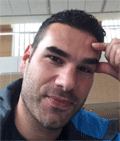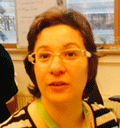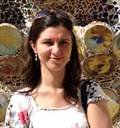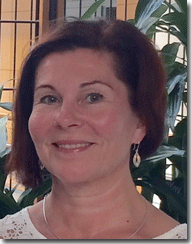
Päivi M. Ojala
Ph.D., Professor in Cancer Cell Biology & K. Albin Johansson Research Professor
Research Programs Unit, Translational Cancer Biology Medicum Faculty of Medicine Biomedicum Helsinki
P.O. Box 63 (Haartmaninkatu 8) FI-00014 University of Helsinki Finland
Tel. +358 2 941 59445 Fax +358 2 941 25610
firstname.surname@helsinki.fi
Affiliations
- Research Programs Unit
- Translational Cancer Biology Research Program
- Centre of Excellence in Translational Cancer Biology
- Medicum


Lab personnel
|
Giuseppe Balistreri, Ph.D. My research focuses on “The cell biology of oncogenic viruses”. Some viruses can cause cancer. In studying this process we follow the lead of the virus to learn general paradigms of cancer progression and metastasis. This knowledge, which spans broad areas of cell biology (e.g. regulation of cell cycle and stress responses, epigenetic regulation of gene expression, intracellular membrane traffic, cell motility etc.) is then used to study other, non-virus induced cancers, such as invasive melanoma. |
|
| Raquel Diaz, Ph.D. | ||
|
The goal of the project is discover the role of host transcription factors on Kaposi Sarcoma herpes Virus (KSHV) genes. In particular I am focusing on the role of lymphatic endothelial specific transcription factors in the regulation KSHV replication. I am interested to find out host-viral crosstalk and which host transcription factors are necessary for stablish viral latency or induction of the lytic cascade. This will be measured by qPCR, IFA for confirmation, and chromatin immunoprecipitation (ChIP) sequencing to look for the specific target sites in KSHV genome. |
|
| SIlvia Gramolelli, Ph.D. | ||
|
My project explores how KSHV hijacks the cellular machinery and the effects of the cellular reprogramming induced by the virus. Upon infection of lymphatic endothelial cells (LECs), KSHV triggers the downregulation of the master regulator of lymphatic differentiation, PROX1, and drives the endothelial-to-mesenchymal transition, which is important for virus-induced tumorigenesis. In particular, I am focusing on the identification of up-and downstream signaling axes elicited by the induction of specific matrix metallo-proteases, the main targets of KSHV-driven cellular reprogramming and their effects on KSHV life cycle and/or cell migration. |
|
| Pirita Pekkonen, M.D., Ph.D. | ||
|
Our previously discovered virus induced changes in lymphatic endothelial cell (LEC) fate has provoked us to ask if melanoma cells cause similar changes in LECs, or if the LECs alter the tumorigenic or metastatic properties of melanoma. In my project I have developed several co-culture models to mimic the melanoma-LEC interactions in vivo. The genes most affected in LECs after encountering melanoma cells are modulators of cell integrity and identity. Furthermore, the melanoma cells co-cultured with LECs change their properties towards a more malignant phenotype. Revealing the molecular mechanisms of these interactions is crucial for the intervention of metastasis and for improving the very poor prognosis of metastatic melanoma. |
|
| Bina Prajapati, M.Sc. | ||
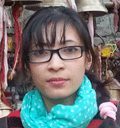 |
My current research project is to study the regulation of KSHV lytic replication and to understand the underlying mechanisms of host cell manipulation by the virus. More specifically, I am how the host cell DNA replication machinery may be benefiting the virus replication during lytic reactivation caused by cellular stress. |
|
| Adewale Taiwo, M.Sc. | ||
 |
I am currently studying the mechanism of the G1/S arrest by-pass by KSHV during lytic reactivation. KSHV exhibits biphasic life cycle consisting of a reversible latent phase followed by transient lytic reactivation and progeny viron production. Cell cycle progression requires the activities of cellular cyclins and their corresponding cyclin kinase-dependent kinases (CDKs), and I am exploring if the virus is utilizing cellular CDKs in the by-pass and the potential involvement of the KSHV encoded v-Cyclin in the process. |
|
| Krista Ojala, Undergraduate student | ||
My project focuses on the cancer cell- tumor microenvironment interactions and their contribution to cancer prohression and metastasis. |
||
| Veronika Rezov, M.Sc., Lab Manager | ||
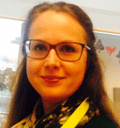 |
||
| Nadezhda Zinovkina, M.Sc. Lab Manager (maternity leave) | ||
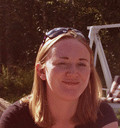 |

